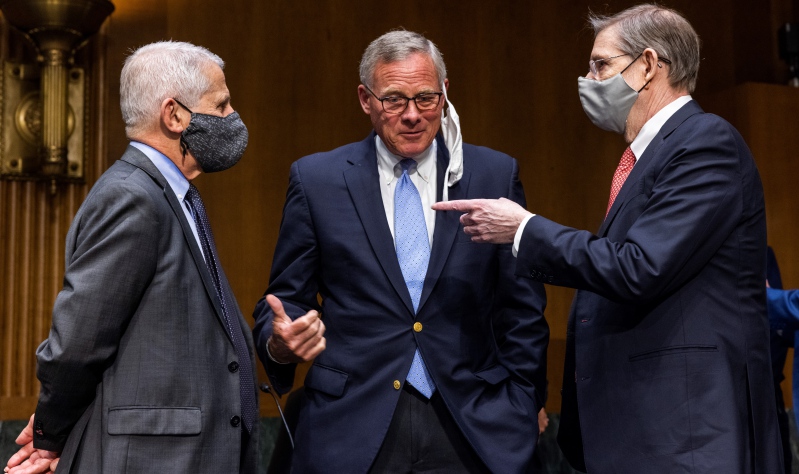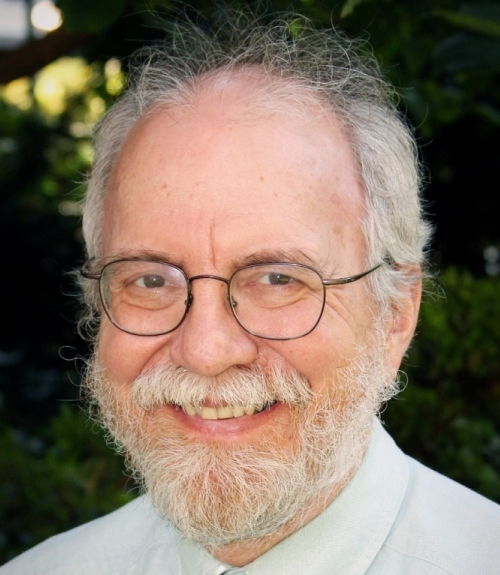
Failing to recognize the importance of value judgments in policymaking encourages anti-science attitudes.
In recent years, science itself has become controversial in the United States, with the rejection of climate science at the forefront. More recently, many Americans are skeptical about COVID-19—its existence, transmissibility, and the effectiveness of methods for containing it. More generally, science denial, and its close cousin “alternative facts,” make up a large part of ideological polarization that goes beyond mere disagreements over policies and extends to refusals to accept common norms about truth.
Individuals on the other side of these debates champion the advice to, “follow the science”—suggesting that science alone can tell society what to do about climate change or controlling the coronavirus. This perspective makes polarization even worse. When those individuals in favor of following the science accuse the other side of not just having a different point of view but willful ignorance, the other side’s understandable reaction is resentment at “elitists” who think they can tell them what to do.
In short, couching policy advocacy in science forces opponents to deny science, and proponents to assert the ignorance of those opponents—to the detriment of all.
The science skeptics are wrong, of course; science helps policymakers choose the right policies. The science determinists are also wrong, though, because science alone cannot dictate all policy choices. Science is necessary but not sufficient. Policy decisions need ethics and values as well.
Science supplies two types of knowledge. The first type comprises basic facts, such as “the earth is approximately 8,000 miles in diameter.” The second and more important type consists of “if-then” claims, such as “if one launches a rocket at a certain speed, then its payload will go into orbit.” At any time, evidence for a particular “if-then” claim may be uncertain. The work of science is to improve that evidence and, sometimes, adopt new “if-then” claims in light of new learning.
Science may help society predict, within some range, the effect of today’s carbon dioxide emissions on future temperatures and the effects of those temperatures on future national and global economies. Science alone, however, does not indicate how much effort governments ought to undertake today to control those future temperatures, both in the United States and in other countries. Those choices involve moral commitments concerning obligations to future generations, domestic and foreign.
Science similarly can show the effects of different kinds of gatherings and practices on rates of coronavirus transmission and its effect on hospital capacity and deaths. But science alone does not determine how to balance those risks against, for example, the effects of keeping children from attending school in person or, in the eyes of many, the alleged affront to personal liberty associated with wearing masks. Such decisions also involve ethical balancing.
I share the moral commitments of many others who believe that policymakers should give considerable weight to the interests of future generations and those around the globe in formulating climate policy. I also share the moral commitments of individuals who find that the value in reducing community spread of the coronavirus exceeds the harm to the liberty interests of those who do not want to wear masks. But I recognize that these considerations involve moral principles, which are not dictated by science or economics.
Understanding why policymaking needs values along with science requires a short and I hope not-too-painful philosophical dive. The idea that science alone does not provide answers is not new but goes back almost three centuries, at least to the philosopher David Hume. The argument Hume made in his Treatise of Human Nature has come to be known as “‘is’ does not imply ‘ought.’” Facts alone cannot say what society ought to do; society needs its own values and moral principles to make that step. “If A shoots B, then A will kill B” is a fact—an “is” statement. To say that it would be wrong for A to shoot B requires—in addition to the fact of the effect of the gunshot—an ethical premise that killing B is wrong.
I cannot deny that, like everything else in philosophy, Hume’s Law has its critics. Nevertheless, recognizing the limits of facts and science in decision-making is not merely a useful principle, but failure to respect this distinction is responsible for widespread science denial. Because science is objectively authoritative and ethics can seem subjectively arbitrary, it is tempting to cloak policy recommendations in science. Opponents then face a choice: accept a policy they do not like, or deny the “science” used to justify it and be castigated.
Before COVID-19, climate change was the poster child for science denial. Advocates of policies to reduce climate change—as noted, I count myself among them—frequently claim that their views follow directly from science, specifically a combination of geophysics, meteorology, and economics. Many others, however, are reluctant to endorse these policies, perhaps because they find the sacrifices too burdensome to their job prospects or bottom lines. If individuals are told that science alone dictates aggressive climate policy that they oppose, these individuals have little choice but to reject the science and become “climate deniers.”
A recent policy shift demonstrates this concept in action. During the Trump Administration, the U.S. Environmental Protection Agency (EPA) repealed the Obama-era Clean Power Plan and instead proposed a much weaker, coal-friendly Affordable Clean Energy rule. A federal circuit court vacated the Trump EPA’s plan, rejecting EPA’s interpretation of the Clean Air Act. In its plan, the Trump EPA, perhaps surprisingly, did not reject the climate science from the Obama-era plan—possibly because the agency knew that the courts would regard such a rejection as “arbitrary and capricious” under administrative law. EPA instead rejected the weight the prior plan gave to the interests of future generations and foreign countries.
To the extent that the Obama-era weights are portrayed as the scientific dictates of economics, the Trump EPA’s benefit-cost analysis constituted a rejection of science. In fact, the rejection of the Obama-era weights reflected a difference in values surrounding how much future and foreign interests should matter.
COVID-19-related policies create the same problems. Objections abound to face mask mandates, restaurant restrictions and closures, and online education. Anthony Fauci, the national treasure that he is, cannot rely on his scientific expertise to tell Americans when to reopen schools or restaurants. He and his research colleagues can, however, tell Americans what will likely happen to transmission, hospitalization, and death rates if masks are not worn, in-person education resumes, or restaurants provide indoor dining. But it is Americans who need to decide whether the risks that science identifies are worth bearing when choosing if, when, and how to resume normal activities.
As an economist, I feel obliged to say something about benefit-cost analysis, which can seem to base policy recommendations on science alone. Values, however, remain present and accounted for in benefit-cost analysis. The ethical defense of benefit-cost analysis rests on two principles. First, the winners who get the benefits could in principle compensate the losers, because benefits exceed costs. Second, were that compensation to take place, both the initial winners and losers would be better off, and policymakers should adopt a policy that makes everyone better off than not to do so—a moral principle. The rub is that if this compensation does not, in fact, happen, as is almost always the case, it becomes necessary to invoke values again to decide if reaping the benefits to the winners is worth incurring the costs to the losers.
Policy discussions belong in the realm of values. The choice should not be whether to accept or reject science. Wishing the sky was green does not change it from being blue. Individuals who favor climate policy or COVID-19 control—including myself—should not pretend that our views are dictated by science. If we continue to do so, science rejection will inevitably become a policy position, engendering dismissive contempt. Moreover, in parts of the country where people are opposed to policies allegedly dictated by science, one can expect their educational systems to place less and less weight on science. The Scopes trial about evolution may not be purely history.
I conclude with a value judgment, not a scientific claim: Ensconcing ignorance in our political system, and by extension, our educational system, cannot be good. Society must acknowledge the inevitability of value judgments in policy arguments. Policy is not just science.
"that" - Google News
June 14, 2021 at 11:07AM
https://ift.tt/35oRylT
To End Science Denial, Admit That Policymaking Is Not All Science - The Regulatory Review
"that" - Google News
https://ift.tt/3d8Dlvv


Tidak ada komentar:
Posting Komentar